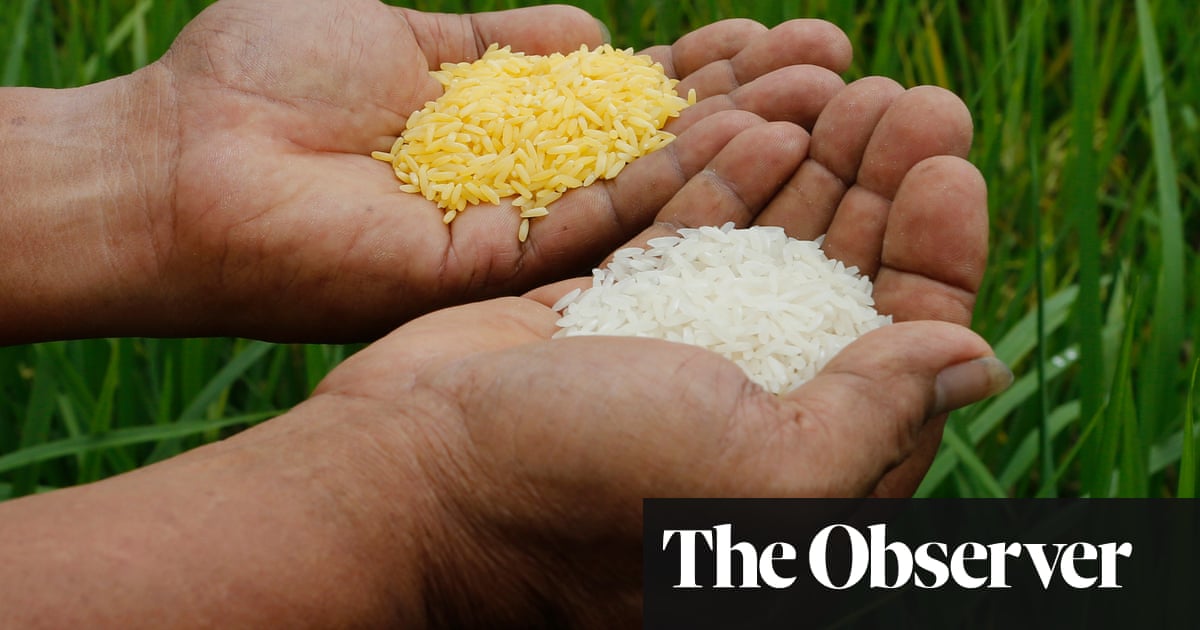Thousands of children could die after court backs campaign group over GM crop in Philippines, scientists warn
Scientists have warned that a court decision to block the growing of the genetically modified (GM) crop Golden Rice in the Philippines could have catastrophic consequences. Tens of thousands of children could die in the wake of the ruling, they argue.
The Philippines had become the first country – in 2021 – to approve the commercial cultivation of Golden Rice, which was developed to combat vitamin A deficiency, a major cause of disability and death among children in many parts of the world.
But campaigns by Greenpeace and local farmers last month persuaded the country’s court of appeal to overturn that approval and to revoke this. The groups had argued that Golden Rice had not been shown to be safe and the claim was backed by the court, a decision that was hailed as “a monumental win” by Greenpeace.
Many scientists, however, say there is no evidence that Golden Rice is in any way dangerous. More to the point, they argue that it is a lifesaver.



How about we just introduce them to carrots as a crop?
Have you ever considered that when you have an idea which seems to be an extremely simple solution to a problem that it might be more complicated than that and those closer to the situation with actual knowledge of the particulars probably already thought of it?
So tell me what the experts say about eating foods such as Leafy green vegetables (kale, spinach, broccoli), orange and yellow vegetables (carrots, sweet potatoes, pumpkin and other winter squash, summer squash), Tomatoes, Red bell pepper, Cantaloupe, mango, Beef liver, Fish oils, Milk, Eggs
All of which are sources of vitamin A.
I’m not arguing that carrots aren’t a good source of vitamin A.
I’m asking you if you’ve considered why those closer to the situation haven’t just gone with carrots. You don’t even know what you don’t know. What other constraints are we working with? Do those things grow well there?
What’s it like going through life thinking you know everything?
You don’t need to insinuate.
Populations have been surviving in the Philippines for millennia without the need for a proprietary spliced rice enriched for Vit A. Just like most other places on earth. Local fauna and flora surely contains a source that met their needs previously.
This has a real, “Back in my day, we kids didn’t have these newfangled car seats and we lived!” vibe to it.
From the article:
Low vitamin A intake in the Philippines is primarily due to the lack of vitamin A-rich foods in the diet, particularly among low-income populations. Factors contributing to this include:
Economic Constraints: Limited financial resources restrict access to diverse and nutrient-rich foods such as animal products (liver, eggs, dairy) and vitamin A-rich fruits and vegetables (carrots, sweet potatoes, dark leafy greens).
Dietary Habits: Traditional diets may not include sufficient amounts of vitamin A-rich foods. Staples like rice and fish, while important, are low in vitamin A.
Agricultural Practices: Local agricultural practices might not prioritize the cultivation of vitamin A-rich crops due to various socio-economic and environmental factors.
To address this, an introduction of non-GMO crops that are rich in vitamin A and unlikely to become invasive could be considered. One such crop could be carrots. Carrots are rich in beta-carotene, which the body converts into vitamin A. They are:
Other potential crops include sweet potatoes (particularly the orange-fleshed varieties), which are also high in beta-carotene and have similar advantages regarding non-invasiveness and adaptability.
Now the only thing I see as a barrier is that instead of waterlogged clay soil, carrots need Sandy well drained soil instead.
Honestly, if the Golden rice wasn’t under a patent (free or not) and wasn’t likely to cross pollinate, I’d be all for it. But at this point I’d sooner the state or NGOs help instituting an egg a day policy over trying to hammer something in that might do more harm than good, more meddling, and may make a poor nation indebted to patent-coloinalism by the Swiss.
What do you do for a living and why do you think you know better than those closer to the problem?
By the way, this looks at least partially written by a LLM.